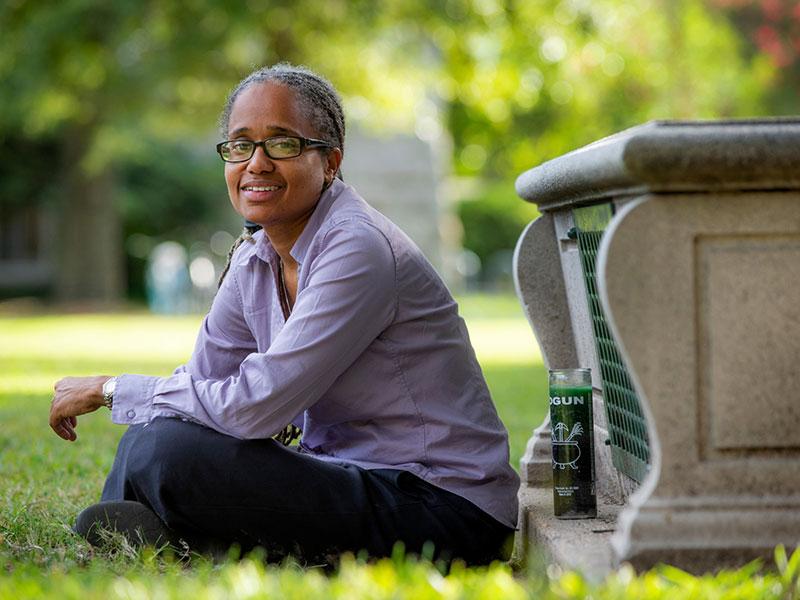History professor champions public humanities, student involvement
Earlier this year, Laura Rosanne Adderley, associate professor of history in the School of Liberal Arts, was named as a finalist for the Thomas Ehrlich Civically Engaged Faculty Award, presented by the Campus Compact coalition of universities. Nominees for this award are considered on the basis of their collaboration with communities, institutional impact and high-quality academic work.
It’s no surprise that a professor with a long history of civic engagement in and around New Orleans would be recognized by Campus Compact. But for Adderley, the honor speaks to what universities at large can be doing for communities nationwide.
Adderley was nominated by the Center for Public Service (CPS) on behalf of the university. Through CPS, Adderley teaches service-learning courses that help to document culture in the city through a lens of Black enslavement and its legacies around the Americas. These courses translate to valuable exposure to the life of the city and experience doing selfless work on historical projects that may otherwise be lost to time.
“One of the reasons I was pretty excited to be named a finalist, is that through CPS at Tulane, a lot of us in the Department of History – and in other humanities fields – are really interested in public history and public humanities, and how we can strengthen these things in any community ... It’s a central part of what a university in the 21st century should be.”
One class documented the murals under I-10 over Claiborne Avenue; others have transcribed documents related to historical slavery sites. In 2018, Adderley began working with the New Orleans Mardi Gras Indian Council (NOMGIC), with whom students from three history classes have worked on building their own NOMGIC archives and compiling research about their traditions. In 2021, this project received a Community Engaged Research grant from CPS.
Documenting public history and public humanities is important work for the community, but also for the university, both in its role as a public-serving entity and as an educational institution.
“This public history work is nowhere near as essential as making sure communities get the food, education and medical care they need. And if we can be a part of those missions, good for us. But you know, strong public humanities projects also cost money and time,” especially for smaller organizations in New Orleans, Adderley said.
“You know, I tell my students, ‘10 years from now, you’re going to pop on the internet, and you’re going to see a gorgeous online exhibit about the history of Super Sunday … what the Mardi Gras Indian tradition was like in the ’80s, with digitized material that we helped them to get organized.’ And when people see educational content like that online, it doesn’t happen by accident.”

